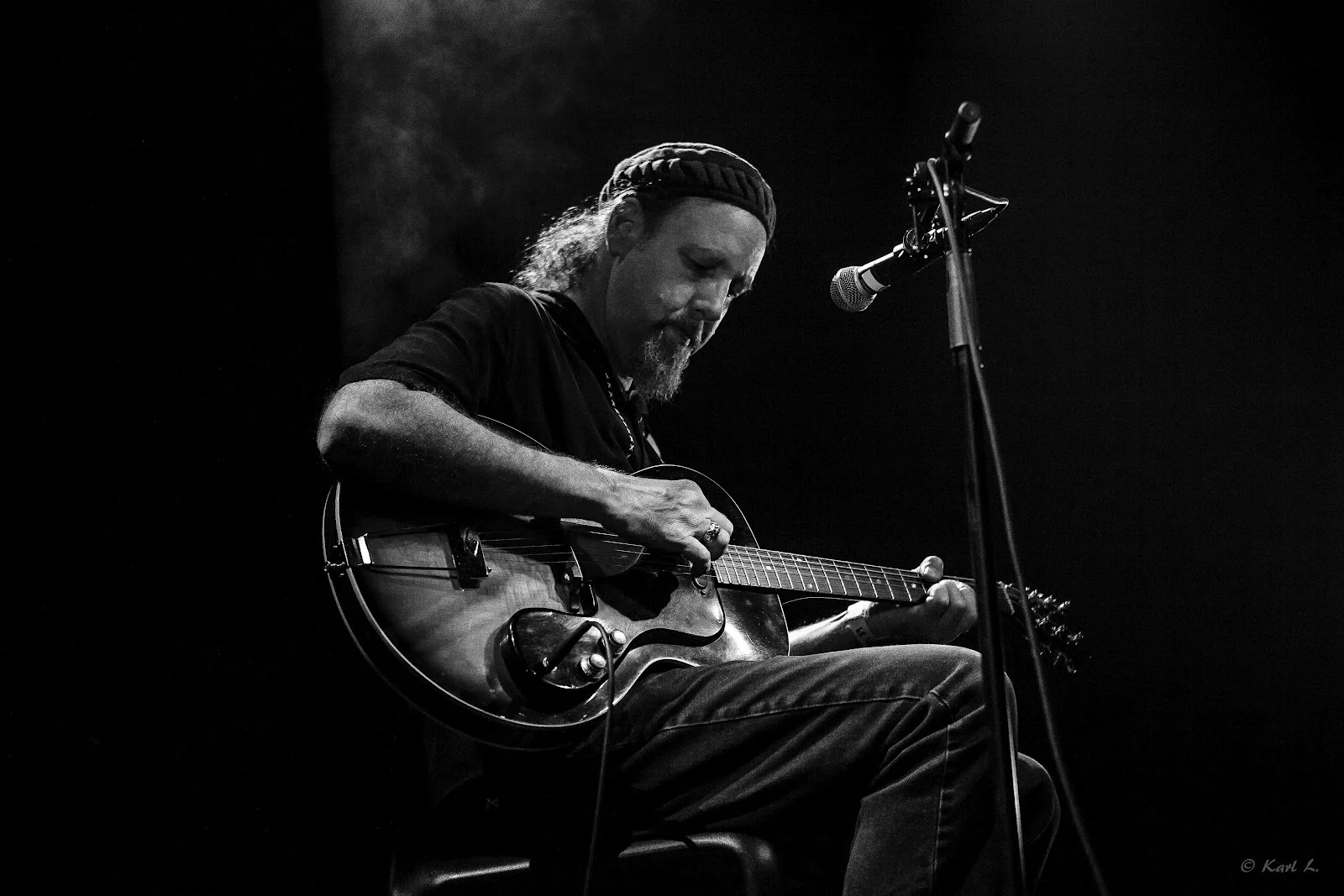LR: The guitar experienced a deep and resonant cultural mytho-poetic meaning in the 20th century. Can you tell us your view of the guitars role in the 20th century artistically and culturally. What do you see as its role in the 21st?
RB - For nearly 50 years the guitar seemed to reign supreme, being THE instrument of choice for a majority of young people getting into music for the first time from the 1960s through the year 2000. That’s the instrument that most people related to ever since Bill Haley, Chuck Berry and the Beatles hit the scene. The main difference between the last half of the 20th century and today is that back then the guitar was an inseparable part of popular music culture - it prevailed across genres and across cultures. That isn’t the case any more when it comes to what is considered “popular” music culture. In fact, within the corporate music scene which seems to be the “popular” music for today’s younger generations, you sometimes have to look long and hard to even see a guitar, let alone hear one, and if you hear one, there’s a good chance it’s been sampled. Of course that is somewhat of an exaggeration but the point is made just the same.
LR - Is it more / less relevant today ?? How? Why?
RB - Even though I think there are more guitar players in the world today than there have ever been before, it seems to me that the guitar is less relevant when the big picture is looked at. The reason for this is that a lot of people just play the same old and tired types of guitar music. We’re all somewhat guilty of it. It’s hard not to fall back on old ways as a safety net or a defense mechanism. We have to recognize when we are doing this and then change course as soon as possible. That being said, it’s still difficult to try to create something new and unheard. But we have to keep plugging along don’t we?
LR - What is the difference between the future of the guitar, and the future of the guitarist?
RB - I’m not sure but I think the guitarist will have to evolve or change first in order for anything else (the music created with guitar) to move forward.
LR - Does the guitar need to be moved forward?
RB - Guitar MUSIC needs to move forward, the instrument itself can remain the same.
LR - What would the move forward entail?
RB - It will require each and every guitarist to really listen to what they are playing and then honestly determine if it is common and predictable. If it is, and they are happy with that, so be it. But if they are not happy with that then they need to start exploring more and taking more risks in order to try and come up with new ideas and material. They need to get out of any comfort zones and be willing to open themselves up to the idea of trying new approaches, perhaps less theoretical and more experimental, and then try to formulate these approaches in order to move things forward, without fear.
LR - To what level should one incorporate the past?
RB - I think any serious guitarist worth any modern salt will have to forget about the past and shun all previous guitar idols. Their work is done. Ours is just beginning.
LR - How can one move forward incorporating the past?
RB - It can’t be done.
LR - How does the move forward include forgetting the past?
RB - Forget first, then move forward. It’s simple.
LR - Where does new come from?
RB - It has always come from within.
LR - Where do you see the light of the future of guitar sound now ???? Players, sub cultures, sounds ???
RB - No comment.
LR - What are the economics of shredding?
RB - It’s a waste of money!
LR - What is the intention behind shredding?
RB - I have no idea since I do not shred.
LR - What is the guitar solos relevance?
RB - It has always been an important element to rock god status and the idea of shredding but as guitar music moves forward the idea of soloing will become less and less relevant and this is a good thing.
LR - How about guitar as a compositional tool?
RB - It works but for me it is more of an improvisational and exploratory tool.
LR - How does gear / technology effect the future of guitar?
RB - I think everybody should be unplugged and have all their toys taken away for a while - only then can it be determined if anybody really knows how to work a guitar. Then re-ask the question. You’ll probably hear a lot of whining.
LR - Is the depth of technical knowledge required to shred and move an instrument forward too complicated a task … too much of a time commitment for the technological future?
RB - It can be but doesn’t have to be. I think the guitar can still be moved forward without technical knowledge or theoretical slave chains getting in the way or causing distractions. In fact, I believe it would be much easier to really shake things up solely by experimenting and not being concerned about what others think.
LR - Was the electric guitar a transition between the human history of acoustic music and the now present future of electronic music?
RB - Yes.
